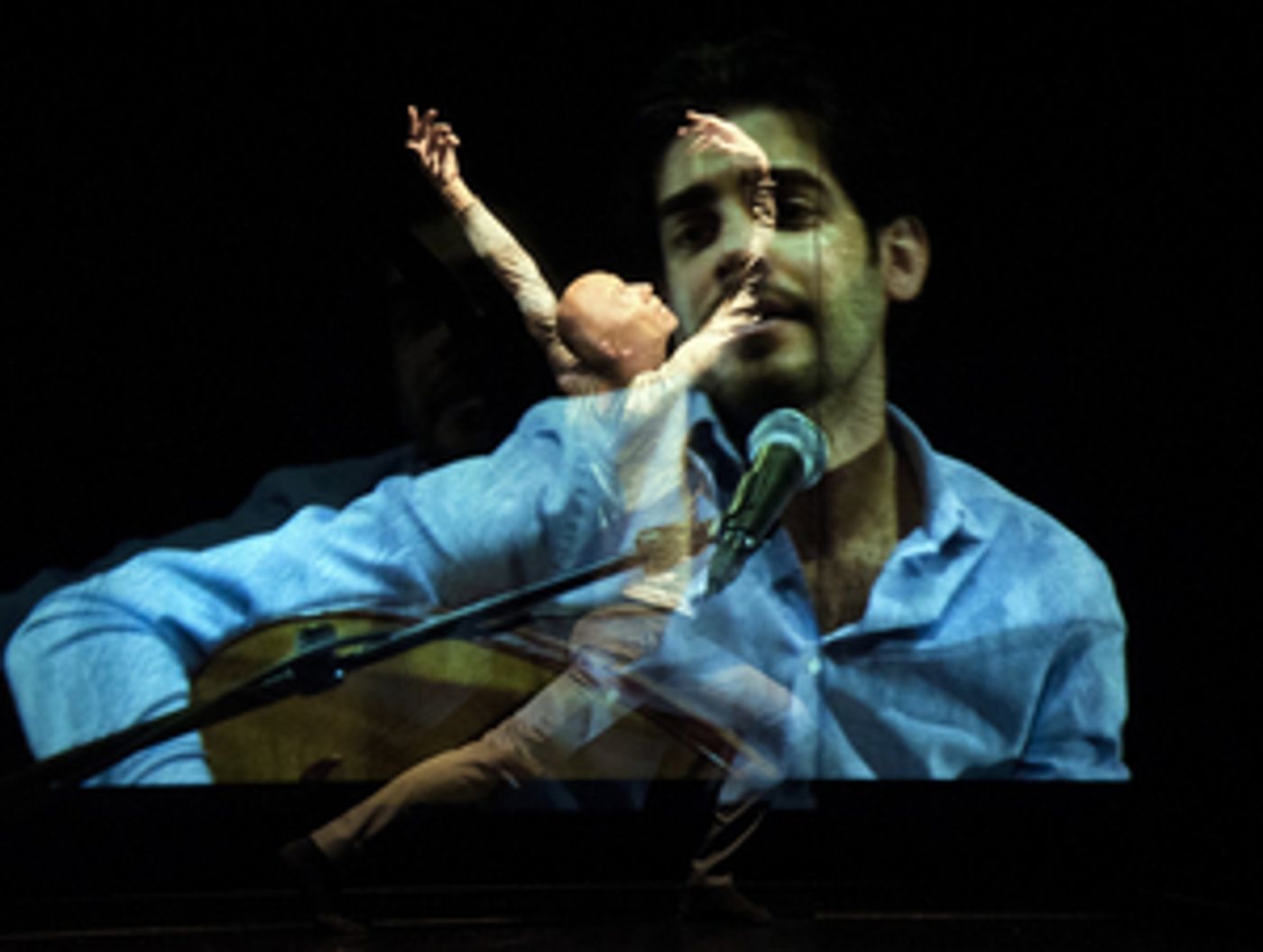EDINBURGH 2019: Review: ALI AND ALPO, Summerhall

![]() Ali Alawad's absence is keenly felt within Ali and Alpo. Alawad was forced to flee Finland before the show's premiere because of a rejected asylum application, leaving Alpo Aaltokoski to dance alone on stage. The duo attempt to make lemonade out of lemons.
Ali Alawad's absence is keenly felt within Ali and Alpo. Alawad was forced to flee Finland before the show's premiere because of a rejected asylum application, leaving Alpo Aaltokoski to dance alone on stage. The duo attempt to make lemonade out of lemons.
But despite projecting Alawad onto stage and feeding his oud lute playing through into Johanna Storm's soundscape, there isn't enough here to create a cohesive production. Indeed, even if Alawad were present, Ali and Alpo would feel disconnected.
The show starts off strong, with Aaltokoski running, circling, backwards and around, trying to reach some unknown destination but only getting further and further, more and more tired. There's an accompanying freneticism in the metallic plucking of the oud lute from Alawad, his absence starkly emphasised through the double projection. A clever use of side lighting from Kari Gratseff gives depth and perspective to Aaltokoski's movements.
But from here on in, the concept is muddied, and it transpires that perhaps Ali and Alpo doesn't have all that much to say. While an interesting fusion on paper of two seemingly distant cultures, the two performative media clash more than they combine. It forces the audience to choose to focus on one over the other, and it's Alawad's composition that is more appealing - hearing more than seeing, slowly phasing out of what is occurring on stage.
Aaltokoski's movement, while competent, is ultimately framed more by the external creative influences than by his own movement. It feels surplus to the piece, attempting a meditative and contemplative state that intersperses the periods of frantic energy.
Ali and Alpo are two competent individuals, giving assured performances despite one being markedly absent. But after this initial concept is introduced, the show leaves its audience wondering what else it has to say.
https://tickets.edfringe.com/whats-on/ali-and-alpo
Reader Reviews
Videos


